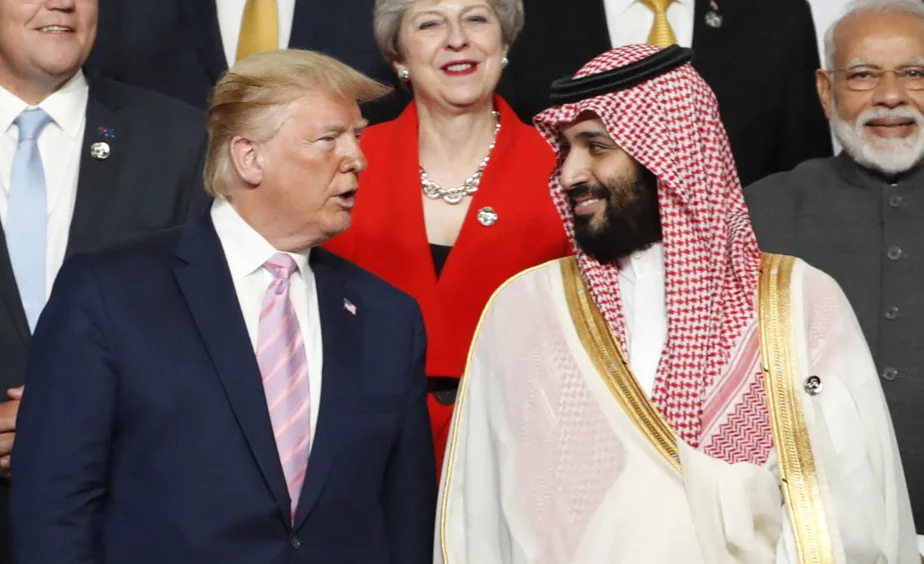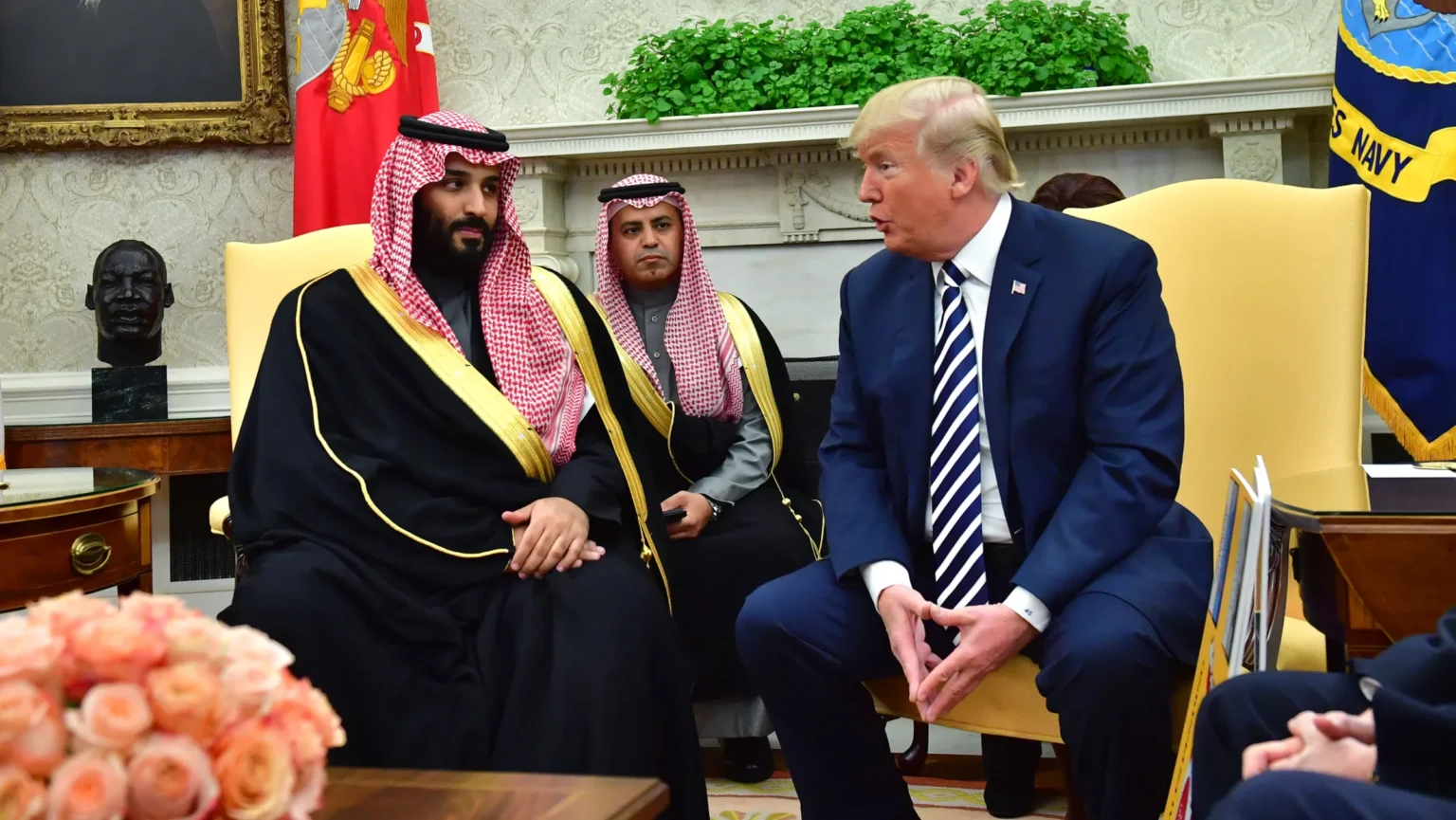Exclusive: Saudi Arabia Pressed Trump to Stop Yemen Attacks Before Visit
In a behind-the-scenes diplomatic move, Saudi Arabia reportedly pressured former U.S. President Donald Trump to halt airstrikes in Yemen shortly before his first visit to the kingdom in May 2017. This surprising request reveals the deep worries Saudi leaders had about how their military campaign in Yemen was seen globally — and how they wanted to carefully manage their image during Trump’s historic visit.
According to insider reports, Saudi officials feared that the ongoing Saudi-led coalition bombings in Yemen, which had drawn heavy international criticism, could hurt relations with the U.S. and bring unwanted media attention during Trump’s highly publicized Middle East tour. The kingdom wanted everything to go smoothly and aimed to present itself as a strong, responsible, and peace-seeking partner to Washington.
Saudi’s Behind-the-Scenes Diplomacy
The war in Yemen began in 2015, when Saudi Arabia launched a military intervention against the Houthi rebels, a group backed by Iran. Riyadh saw the Houthis’ rise as a major threat on its southern border and feared Iran’s expanding influence in the region. The Saudi-led coalition, which includes the United Arab Emirates and other Gulf states, has since waged a heavy air campaign against Houthi targets.
But over the years, the war has turned into one of the world’s worst humanitarian crises. Thousands of civilians have been killed or injured by airstrikes, and millions have been forced to flee their homes. Yemen’s hospitals, schools, and basic infrastructure have been bombed or collapsed, leaving much of the population on the brink of famine.

By 2017, the conflict had drawn sharp criticism from human rights groups, international media, and even some Western lawmakers. As Trump prepared for his first overseas trip as U.S. president — with Saudi Arabia as the first stop — Saudi leaders were eager to avoid any fresh controversies.
Sources say they quietly approached Washington, asking for help in pausing or limiting coalition airstrikes during Trump’s visit. The goal was clear: to ensure that no new civilian casualties or bombing headlines would dominate the news just as Saudi Arabia was trying to showcase its partnership with the new U.S. administration.
For Saudi Arabia, Trump’s visit was not just another diplomatic meeting — it was a major moment on the world stage. Billions of dollars in arms deals were on the table, and Riyadh wanted to show that it was a key U.S. ally in the region.
What Did the U.S. Do?
While the Trump administration has not publicly confirmed these behind-the-scenes talks, insiders say there was active communication between the two governments on managing the timing of military actions in Yemen.
Though the U.S. was not directly flying Saudi warplanes, American support was critical to the coalition’s military operations. The U.S. provided intelligence, logistical assistance, and maintenance for Saudi aircraft. It also sold advanced weaponry and provided training to Saudi forces.
A temporary reduction in airstrikes during Trump’s visit would help avoid uncomfortable media questions and protests, especially as Trump and Saudi leaders announced new business and military agreements. Critics argue this temporary move shows how political and public relations concerns, rather than humanitarian needs, have often driven decisions in the Yemen conflict.
Humanitarian Crisis Still Unresolved
Despite any short-term pause or reduction in strikes around Trump’s trip, Yemen’s humanitarian disaster continued long afterward — and it remains one of the world’s most urgent crises today.
According to United Nations reports, by 2024 the Yemen war has caused over 377,000 deaths, including not just direct casualties but also deaths from hunger, disease, and lack of medical care. Millions of Yemenis remain displaced, living in dire conditions with limited access to food, water, and healthcare.
International aid groups and human rights organizations have repeatedly called for a complete halt to Saudi airstrikes and for Western countries — especially the U.S., Britain, and France — to stop selling weapons to the coalition. They argue that Western military support has fueled the war and made the suffering even worse.
U.S. Role Under Trump and Biden
The U.S. has long played a complicated role in the Yemen conflict. Under Trump, Washington deepened its military and diplomatic ties with Saudi Arabia, striking huge arms deals and providing ongoing support for the Saudi-led war effort.
When President Joe Biden took office in 2021, he promised a shift in U.S. policy. Biden announced that the U.S. would end support for “offensive operations” in Yemen and focus on diplomatic efforts to end the war. However, critics say that in practice, U.S. arms sales and military aid have continued, keeping Washington involved in the conflict despite the official change in tone.
This has led to increasing pressure from both lawmakers and activists inside the U.S. to take stronger action, including pushing for an outright ban on arms sales to Saudi Arabia and the UAE until the war fully ends.
What This Means Today
This new revelation about Saudi Arabia’s efforts to pause airstrikes ahead of Trump’s 2017 visit provides a window into how political calculations often shape decisions in war zones. It shows that governments sometimes act not out of concern for human lives, but to manage their international image or secure lucrative diplomatic deals.
The report also raises deeper questions about how much influence the U.S. really has over its allies — and whether that influence is used to protect civilians or only to serve short-term political goals.
As of 2025, peace talks between Saudi Arabia, the Houthis, and regional powers continue. While some progress has been made, millions of Yemenis are still waiting for meaningful, long-lasting peace and relief. Many are watching to see whether the world’s powerful countries, including the U.S., will take real steps to end the conflict — or whether political interests will continue to dominate decisions.
Final Thoughts
The Yemen war has often been called “the forgotten war” because it rarely makes global headlines despite the scale of the suffering. But stories like this remind us that what happens behind closed doors between governments can have real, lasting impacts on the lives of millions.
As attention shifts back to Yemen and the international role in the conflict, there is renewed hope among humanitarian groups that greater transparency, accountability, and diplomatic effort could finally bring an end to a war that has lasted far too long.
For more information click here
UAE’s $659 Billion Project Pipeline: A Glimpse into the Future



